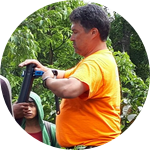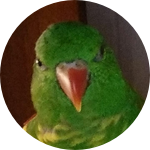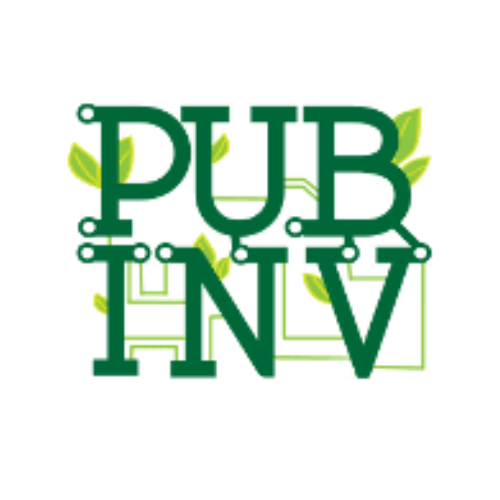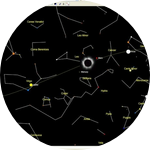Project Results
The heater PWA is located inside of the thermos/bento box holder along with petrifilm stack. Ordering printed wire assemblies is the key to avoiding a bulky hand wired prototype resulting in a lighter unit.
About This Project
Waiting for lab results is slowing science down! We are designing a fully open source portable incubator that will speed up field work in the life sciences. It will provide rugged and reliable results outside of a laboratory to cultivate various microbes. This includes testing for E. coli as a marker for fecal contamination in drinking water, a leading cause of death in children worldwide. The grant will allow us to build 5 prototypes and test them for usability, portability, and ruggedness.
Ask the Scientists
Join The DiscussionWhat is the context of this research?
The process of transporting samples from the field to the laboratory and anxiously awaiting results is especially impeding the progress of life sciences. According to the US EPA, source water biological samples should be held for no more than 8 hours at 10C. In rugged conditions it is often impossible to reach a laboratory in 8 hours, and difficult to keep samples cool.
If the world had an easily portable and reliable specimen incubator, scientists could swiftly obtain quick field on-site results in the investigation studies of pathogens, microbes, and even the incubation of frog spawn, revolutionizing the way some field studies are conducted worldwide.
What is the significance of this project?
Laboratory incubators cost about $1000, require reliable 110VAC power, weigh about 40 pounds, and labs are far from the field.
By harnessing the power of a portable incubator, long timelines for obtaining genuine scientific results will be dramatically compressed from weeks of waiting to mere days, enabling scientists and engineers to make in-the-field decisions.
For example, everyday waterborne illness kills 2,000 children less than five years of age. Incubation for detection of E. coli as a marker of fecal contamination is a fundamental life saving technique used worldwide. Many of those children die in remote and rural locations far from laboratories.
An inexpensive, truly portable incubator would save lives.
What are the goals of the project?
Our first goal is to validate the design for a rugged, usable, versatile portable incubator that will be as reliable as a laboratory incubator, but shortens analysis time. We will research this with real users performing E. coli analysis in the field, comparing their user experience to an existing commercial design (a Hach portable incubator which is heavier, more expensive, and less open that our proposed design) using standard usability survey metrics.
Our second goal is to foster a global community of open-source engineers and scientists contributing to the incubator using local use cases and knowledge. By standardizing the power connection interface, we will support different incubation chamber sizes.
Budget
This project has already been tested with a hand-soldered solution, but to make it better and reproducible we need to design a PCB. Our largest cost is for this design; although the team is not getting compensated, we often have to iterate a design and use up some equipment and make some mistakes to get it right. The rest of the money is estimated closely based on the actual prices of parts needed to make 5 units for field-testing with life scientists. Although the ultimate goal is to have anyone make one from our open-source designs, we know that manufacturing testable artifacts allows engineers to evaluate the design far more effectively. By using a modern micro-controller with a small hi-resolution display and rotary encoder, we can make a versatile incubator with easily customizable temperature regimes. The control module will be separated by a documented interface from the incubation chamber, allowing future developers to make larger or smaller chambers compatibly.
Endorsed by
 Project Timeline
Project Timeline
The Moonrat I(1) hand-wired portable incubator underwent field testing in Tanzania. During this process, we identified certain areas for improvement and are now striving to develop an enhanced version, the Moonrat II second generation. Our goal is to create a unit that is both lightweight and cost-effective, addressing the shortcomings we discovered. By incorporating these advancements, we aim to offer a superior solution for incubation needs in various settings.
Jun 14, 2023
System schematic is complete.
Jun 28, 2023
PCB schematic is complete.
Jul 05, 2023
Migrate the first generation Arduino code to match a new PCB design providing enhanced functionality, utilizing a rotatory encoder.
Jul 10, 2023
Project Launched
Jul 12, 2023
Design of the 3D printable enclosure.
Meet the Team
Team Bio
Robert L. Read, PhD, was a Presidential Innovation Fellow in 2013 and co-founded the 18F technology incubator in the US Federal Government.
Melanie Laporte studies Computer Science and Art at Columbia University. She is working on a NASA innovation for the International Space Station's Universal Waste Management System.
(Forrest) Lee Erickson had a career doing elementary analog circuit design for audio, video and deflection systems and embedded systems.
Public Invention
We invent things that help all people. We empower inventors, technologists, and students to publish, find, and collaborate on invention ideas through direct coaching, team formation, curation of work, publication, co-working and learning events, and, in some cases, material support.
We challenge the notion that inventions should be reserved for patents and profits. Rather, we invite fellow builders of the future to use their skills for humanitarian purpose. We want to make the future better for everyone. To do this we remove, rather than add, legal barriers to the free use of our inventions. All work done with Public Invention is free and open to all under share-alike public licenses.
The Public Inventor of the future is not a lone genius but a person who is part of a community. We empower Public Invention Teams that embrace the interdisciplinary talents that combine to shape the future: inventiveness, design, writing, art, photography, engineering, administration, fundraising, and other skills we cannot predict. All of our work is in service to nurture humanitarian invention.
Forrest Lee Erickson
CAUTION Amused Scientist (I am not mad yet. Thou I am angry about the world not living up to the potential science can offer.)
B.S. Physics, U of MN
Hobbies in no particular order:
- Amateur Astronomy
- ESP32
- Arduino and Artuino UNO
- KiCad
- FreeCAD
- RPi
- Linux
- Amateur Radio (KE4AXQ)
- Wood & metal working
- Private Pilot
- SCUBA
- Archeology
- Paleontology
- Freethought (fighting supernatural nonsense where ever found.)
- I am a physicist who has had a carrier in something like embedded systems design with both analog and digital circuits.
Melanie Laporte
Melanie Laporte studies Computer Science and Art at Columbia University.
She is working on the Portable Incubator with Public Invention, as well as on a NASA innovation for the International Space Station's Universal Waste Management System.
Her ultimate ambition is to harness technology to create innovative solutions for the betterment of society.
She is dedicated to encouraging more women to pursue STEM careers and has created an after-school program as well as a social media channel to teach coding and circuitry to girls.
Melanie aims to redefine perceptions of engineers and challenge preconceived notions of what they look like.
She embraces diverse interests such as fencing, sailing, robots, writing science fiction stories, DJing, and exploring the connection between art and technology to create unrealized beauty.
Robert Read
Robert L. Read has a PhD in Computer Science from UT Austin. He was a Presidential Innovation Fellow in 2013. In 2015 he found Public Invention with the motto "Invent in the public, for the Public." Public Invention extends the open source software movement to actual inventions. We create teams to work on inventions in the public interest---which is closes related to the humanitarian engineering.
I have never been a professor, but sometimes publish peer-reviewed papers in mathematics, electronics, mechanical engineering and other sciences.
Additional Information
We are seeking to improve on our previously published work:
The design and usage of a portable incubator for inexpensive in-field water analysis
The World Health Organization report on Water Quality Monitoring describes many water microbial test that generally take 48 hours.
According to the US EPA, the holding time for source water E. coli samples is 8 hours at 10C, but since it is often difficult to hold that temperature in field under rugged conditions, immediate inoculation and should be begun within 8 hours of collecting the sample.
Join us in our work!
Project Backers
- 13Backers
- 100%Funded
- $2,000Total Donations
- $153.85Average Donation






